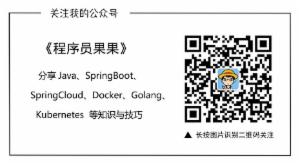Eureka 源码分析之 Eureka Server

简介
上一篇文章 《Eureka 源码分析之 Eureka Client》 通过源码知道 ,eureka Client 是通过 http rest来 与 eureka server 交互,实现 注册服务,续约服务,服务下线 等。本篇探究下eureka server。
源码分析
从 @EnableEurekaServer 注解为入口分析,通过源码可以看出他是一个标记注解:
/**
* Annotation to activate Eureka Server related configuration {@link
*/
@Target(ElementType.TYPE)
@Retention(RetentionPolicy.RUNTIME)
@Documented
@Import(EurekaServerMarkerConfiguration.class)
public @interface EnableEurekaServer {
}
从注释可以知道,用来激活 eureka server 的 配置类 EurekaServerAutoConfiguration 中相关配置,EurekaServerAutoConfiguration 的关键代码如下:
@Configuration
@Import(EurekaServerInitializerConfiguration.class)
@ConditionalOnBean(EurekaServerMarkerConfiguration.Marker.class)
@EnableConfigurationProperties({ EurekaDashboardProperties.class,
InstanceRegistryProperties.class })
@PropertySource("classpath:/eureka/server.properties")
public class EurekaServerAutoConfiguration extends WebMvcConfigurerAdapter {
/**
* List of packages containing Jersey resources required by the Eureka server
*/
private static final String[] EUREKA_PACKAGES = new String[] { "com.netflix.discovery",
"com.netflix.eureka" };
@Autowired
private ApplicationInfoManager applicationInfoManager;
@Autowired
private EurekaServerConfig eurekaServerConfig;
@Autowired
private EurekaClientConfig eurekaClientConfig;
@Autowired
private EurekaClient eurekaClient;
@Autowired
private InstanceRegistryProperties instanceRegistryProperties;
public static final CloudJacksonJson JACKSON_JSON = new CloudJacksonJson();
@Bean
public HasFeatures eurekaServerFeature() {
return HasFeatures.namedFeature("Eureka Server",
EurekaServerAutoConfiguration.class);
}
@Configuration
protected static class EurekaServerConfigBeanConfiguration {
// 创建并加载EurekaServerConfig的实现类,主要是Eureka-server的配置信息
@Bean
@ConditionalOnMissingBean
public EurekaServerConfig eurekaServerConfig(EurekaClientConfig clientConfig) {
EurekaServerConfigBean server = new EurekaServerConfigBean();
if (clientConfig.shouldRegisterWithEureka()) {
// Set a sensible default if we are supposed to replicate
server.setRegistrySyncRetries(5);
}
return server;
}
}
//加载EurekaController,SpringCloud 提供了一些额外的接口,用来获取eurekaServer的信息
@Bean
@ConditionalOnProperty(prefix = "eureka.dashboard", name = "enabled", matchIfMissing = true)
public EurekaController eurekaController() {
return new EurekaController(this.applicationInfoManager);
}
//省略 ...
// 接收客户端的注册等请求就是通过InstanceRegistry来处理的,是真正处理业务的类,接下来会详细分析
@Bean
public PeerAwareInstanceRegistry peerAwareInstanceRegistry(
ServerCodecs serverCodecs) {
this.eurekaClient.getApplications(); // force initialization
return new InstanceRegistry(this.eurekaServerConfig, this.eurekaClientConfig,
serverCodecs, this.eurekaClient,
this.instanceRegistryProperties.getExpectedNumberOfRenewsPerMin(),
this.instanceRegistryProperties.getDefaultOpenForTrafficCount());
}
//配置服务节点信息,这里的作用主要是为了配置Eureka的peer节点,也就是说当有收到有节点注册上来的时候,需要通知给哪些节点
@Bean
@ConditionalOnMissingBean
public PeerEurekaNodes peerEurekaNodes(PeerAwareInstanceRegistry registry,
ServerCodecs serverCodecs) {
return new RefreshablePeerEurekaNodes(registry, this.eurekaServerConfig,
this.eurekaClientConfig, serverCodecs, this.applicationInfoManager);
}
//省略 ...
//EurekaServer的上下文
@Bean
public EurekaServerContext eurekaServerContext(ServerCodecs serverCodecs,
PeerAwareInstanceRegistry registry, PeerEurekaNodes peerEurekaNodes) {
return new DefaultEurekaServerContext(this.eurekaServerConfig, serverCodecs,
registry, peerEurekaNodes, this.applicationInfoManager);
}
// 初始化Eureka-server,会同步其他注册中心的数据到当前注册中心
@Bean
public EurekaServerBootstrap eurekaServerBootstrap(PeerAwareInstanceRegistry registry,
EurekaServerContext serverContext) {
return new EurekaServerBootstrap(this.applicationInfoManager,
this.eurekaClientConfig, this.eurekaServerConfig, registry,
serverContext);
}
// 配置拦截器,ServletContainer里面实现了jersey框架,通过他来实现eurekaServer对外的restFull接口
@Bean
public FilterRegistrationBean jerseyFilterRegistration(
javax.ws.rs.core.Application eurekaJerseyApp) {
FilterRegistrationBean bean = new FilterRegistrationBean();
bean.setFilter(new ServletContainer(eurekaJerseyApp));
bean.setOrder(Ordered.LOWEST_PRECEDENCE);
bean.setUrlPatterns(
Collections.singletonList(EurekaConstants.DEFAULT_PREFIX + "/*"));
return bean;
}
//省略 ...
}
从EurekaServerAutoConfiguration 类上的注解@Import(EurekaServerInitializerConfiguration.class) 可以到,实例化类EurekaServerAutoConfiguration之前,已经实例化了EurekaServerInitializerConfiguration类,代码如下:
@Configuration
@CommonsLog
public class EurekaServerInitializerConfiguration
implements ServletContextAware, SmartLifecycle, Ordered {
// 此处省略部分代码
@Override
public void start() {
// 启动一个线程
new Thread(new Runnable() {
@Override
public void run() {
try {
//初始化EurekaServer,同时启动Eureka Server ,后面着重讲这里
eurekaServerBootstrap.contextInitialized(EurekaServerInitializerConfiguration.this.servletContext);
log.info("Started Eureka Server");
// 发布EurekaServer的注册事件
publish(new EurekaRegistryAvailableEvent(getEurekaServerConfig()));
// 设置启动的状态为true
EurekaServerInitializerConfiguration.this.running = true;
// 发送Eureka Start 事件 , 其他还有各种事件,我们可以监听这种时间,然后做一些特定的业务需求,后面会讲到。
publish(new EurekaServerStartedEvent(getEurekaServerConfig()));
}
catch (Exception ex) {
// Help!
log.error("Could not initialize Eureka servlet context", ex);
}
}
}).start();
}
// 此处省略部分代码
}
这个start方法中开启了一个新的线程,然后进行一些Eureka Server的初始化工作,比如调用eurekaServerBootstrap的contextInitialized方法,EurekaServerBootstrap代码如下:
public class EurekaServerBootstrap {
// 此处省略部分代码
public void contextInitialized(ServletContext context) {
try {
// 初始化Eureka的环境变量
initEurekaEnvironment();
// 初始化Eureka的上下文
initEurekaServerContext();
context.setAttribute(EurekaServerContext.class.getName(), this.serverContext);
}
catch (Throwable e) {
log.error("Cannot bootstrap eureka server :", e);
throw new RuntimeException("Cannot bootstrap eureka server :", e);
}
}
protected void initEurekaEnvironment() throws Exception {
log.info("Setting the eureka configuration..");
String dataCenter = ConfigurationManager.getConfigInstance()
.getString(EUREKA_DATACENTER);
if (dataCenter == null) {
log.info(
"Eureka data center value eureka.datacenter is not set, defaulting to default");
ConfigurationManager.getConfigInstance()
.setProperty(ARCHAIUS_DEPLOYMENT_DATACENTER, DEFAULT);
}
else {
ConfigurationManager.getConfigInstance()
.setProperty(ARCHAIUS_DEPLOYMENT_DATACENTER, dataCenter);
}
String environment = ConfigurationManager.getConfigInstance()
.getString(EUREKA_ENVIRONMENT);
if (environment == null) {
ConfigurationManager.getConfigInstance()
.setProperty(ARCHAIUS_DEPLOYMENT_ENVIRONMENT, TEST);
log.info(
"Eureka environment value eureka.environment is not set, defaulting to test");
}
else {
ConfigurationManager.getConfigInstance()
.setProperty(ARCHAIUS_DEPLOYMENT_ENVIRONMENT, environment);
}
}
protected void initEurekaServerContext() throws Exception {
// For backward compatibility
JsonXStream.getInstance().registerConverter(new V1AwareInstanceInfoConverter(),
XStream.PRIORITY_VERY_HIGH);
XmlXStream.getInstance().registerConverter(new V1AwareInstanceInfoConverter(),
XStream.PRIORITY_VERY_HIGH);
if (isAws(this.applicationInfoManager.getInfo())) {
this.awsBinder = new AwsBinderDelegate(this.eurekaServerConfig,
this.eurekaClientConfig, this.registry, this.applicationInfoManager);
this.awsBinder.start();
}
//初始化eureka server上下文
EurekaServerContextHolder.initialize(this.serverContext);
log.info("Initialized server context");
// Copy registry from neighboring eureka node
// 从相邻的eureka节点复制注册表
int registryCount = this.registry.syncUp();
// 默认每30秒发送心跳,1分钟就是2次
// 修改eureka状态为up
// 同时,这里面会开启一个定时任务,用于清理 60秒没有心跳的客户端。自动下线
this.registry.openForTraffic(this.applicationInfoManager, registryCount);
// Register all monitoring statistics.
EurekaMonitors.registerAllStats();
}
public void contextDestroyed(ServletContext context) {
try {
log.info("Shutting down Eureka Server..");
context.removeAttribute(EurekaServerContext.class.getName());
destroyEurekaServerContext();
destroyEurekaEnvironment();
}
catch (Throwable e) {
log.error("Error shutting down eureka", e);
}
log.info("Eureka Service is now shutdown...");
}
}
在初始化Eureka Server上下文环境后,就会继续执行openForTraffic方法,这个方法主要是设置了期望每分钟接收到的心跳次数,并将服务实例的状态设置为UP,最后又通过方法postInit来开启一个定时任务,用于每隔一段时间(默认60秒)将没有续约的服务实例(默认90秒没有续约)清理掉。openForTraffic的方法代码如下:
@Override
public void openForTraffic(ApplicationInfoManager applicationInfoManager, int count) {
// Renewals happen every 30 seconds and for a minute it should be a factor of 2.
// 计算每分钟最大续约数
this.expectedNumberOfRenewsPerMin = count * 2;
// 计算每分钟最小续约数
this.numberOfRenewsPerMinThreshold =
(int) (this.expectedNumberOfRenewsPerMin * serverConfig.getRenewalPercentThreshold());
logger.info("Got {} instances from neighboring DS node", count);
logger.info("Renew threshold is: {}", numberOfRenewsPerMinThreshold);
this.startupTime = System.currentTimeMillis();
if (count > 0) {
this.peerInstancesTransferEmptyOnStartup = false;
}
DataCenterInfo.Name selfName = applicationInfoManager.getInfo().getDataCenterInfo().getName();
boolean isAws = Name.Amazon == selfName;
if (isAws && serverConfig.shouldPrimeAwsReplicaConnections()) {
logger.info("Priming AWS connections for all replicas..");
primeAwsReplicas(applicationInfoManager);
}
logger.info("Changing status to UP");
// 修改服务实例的状态为UP
applicationInfoManager.setInstanceStatus(InstanceStatus.UP);
// 开启定时任务,每隔一段时间(默认60秒)将没有续约的服务实例(默认90秒没有续约)清理掉
super.postInit();
}
postInit方法开启了一个新的定时任务,代码如下:
protected void postInit() {
renewsLastMin.start();
if (evictionTaskRef.get() != null) {
evictionTaskRef.get().cancel();
}
evictionTaskRef.set(new EvictionTask());
evictionTimer.schedule(evictionTaskRef.get(),
serverConfig.getEvictionIntervalTimerInMs(),
serverConfig.getEvictionIntervalTimerInMs());
}
这里的时间间隔都来自于EurekaServerConfigBean类,可以在配置文件中以eureka.server开头的配置来进行设置。
参考
https://www.e-learn.cn/content/qita/775244
https://nobodyiam.com/2016/06/25/dive-into-eureka/ https://blog.csdn.net/Lammonpeter/article/details/84330900
-- END --

每一个“ 在 看 ”,都是对我最大的肯定 ! 
- 本文标签: 线程 ask 代码 bean Collections Connection 数据 文章 CTO springcloud Eureka java tar core SDN constant json stream Amazon node UI ACE 注释 id list spring js src RESTful Service 实例 Dashboard 同步 源码 配置 http 时间 Collection value rmi https client Bootstrap Property Document 注册中心 final classpath cat ECS 需求 IO XML servlet 详细分析 IDE Features App Netflix REST web
- 版权声明: 本文为互联网转载文章,出处已在文章中说明(部分除外)。如果侵权,请联系本站长删除,谢谢。
- 本文海报: 生成海报一 生成海报二











![[HBLOG]公众号](https://www.liuhaihua.cn/img/qrcode_gzh.jpg)

